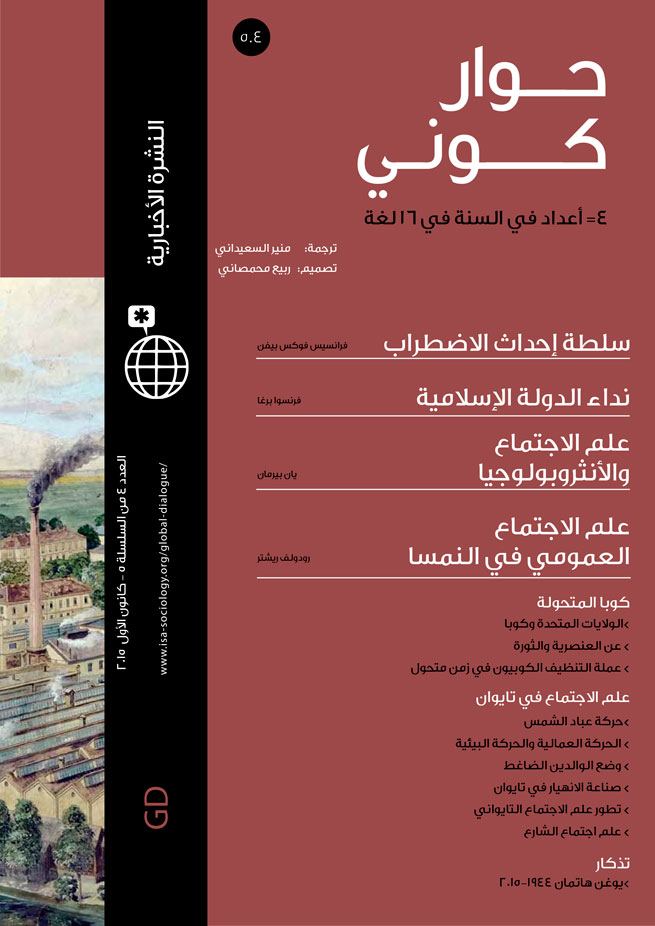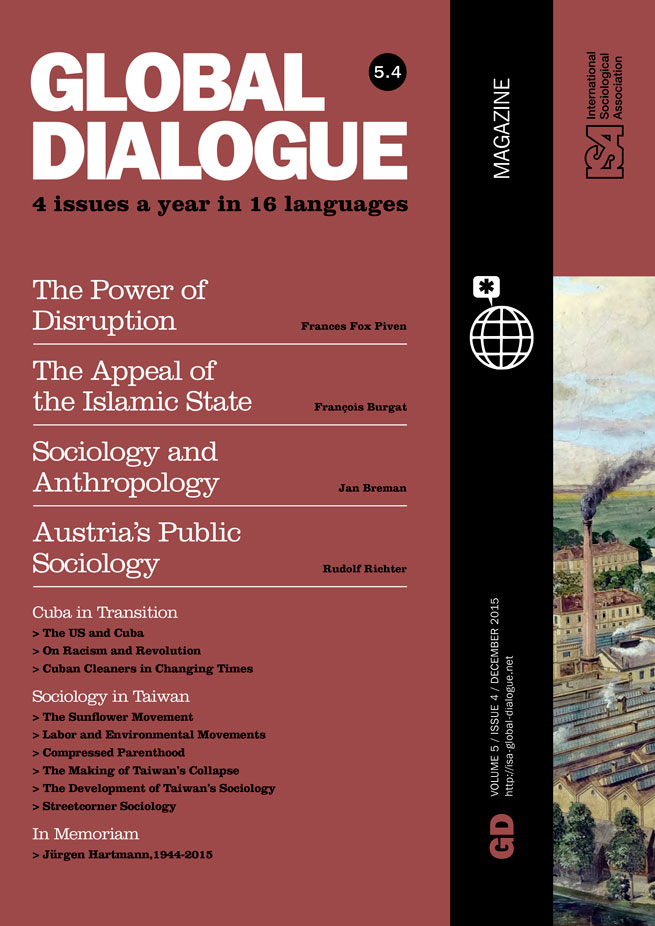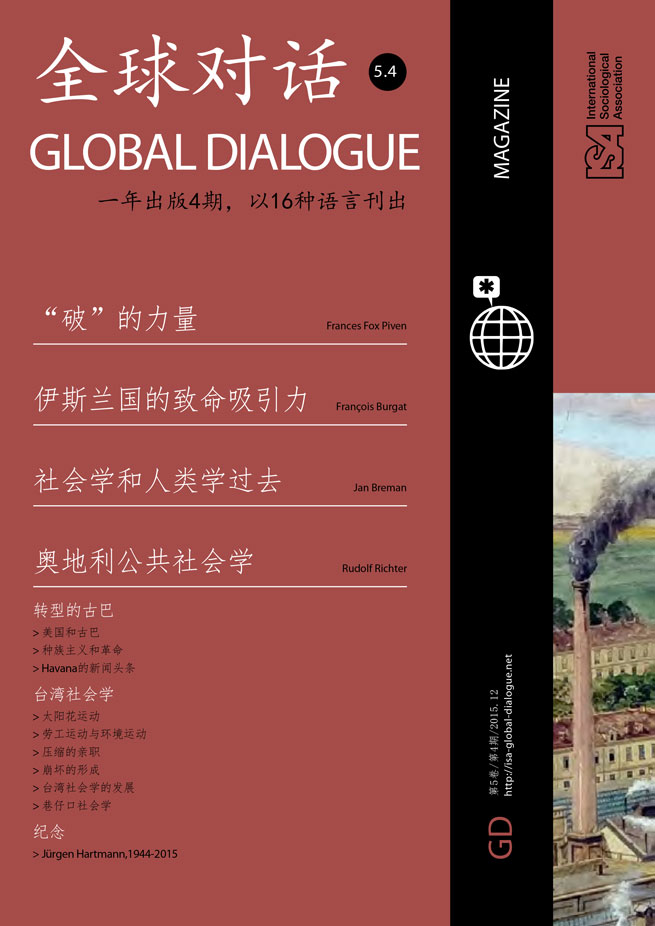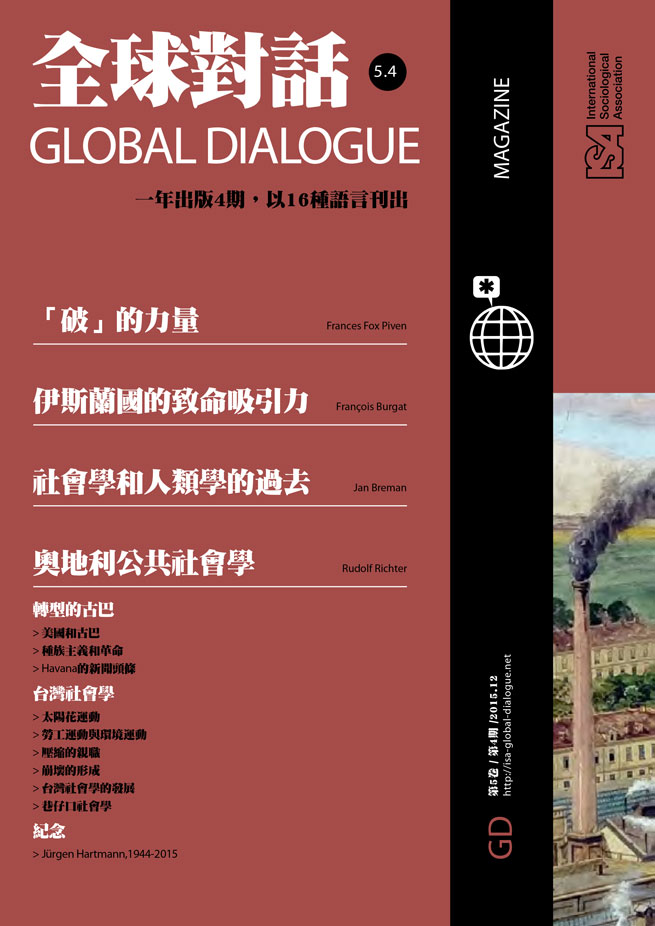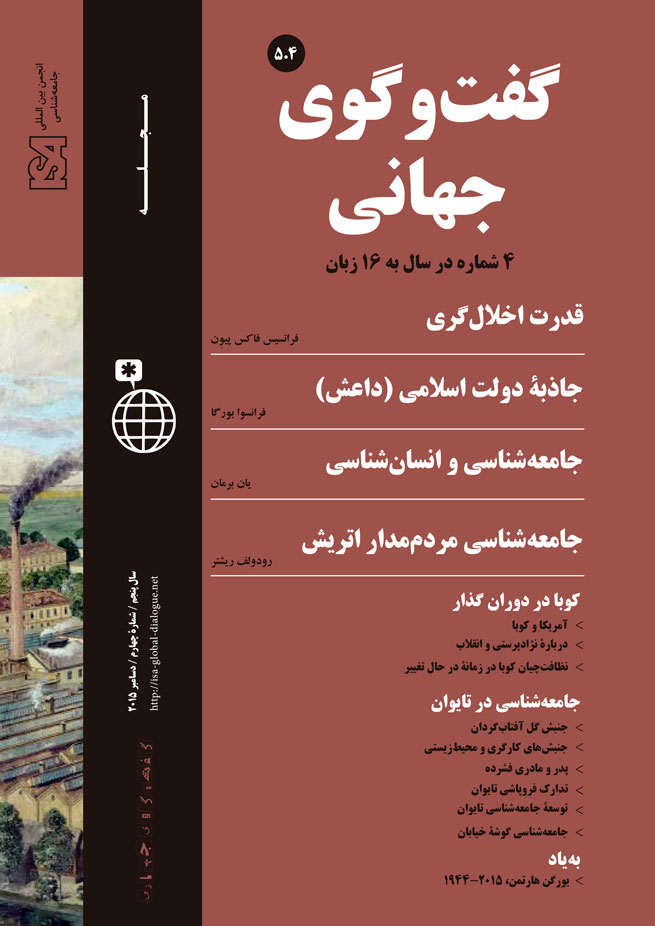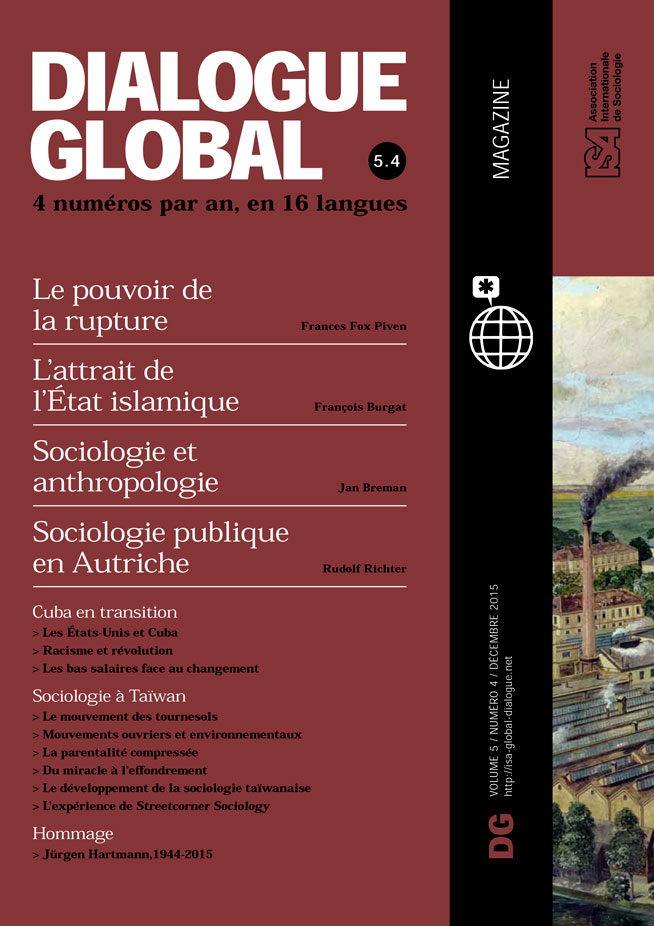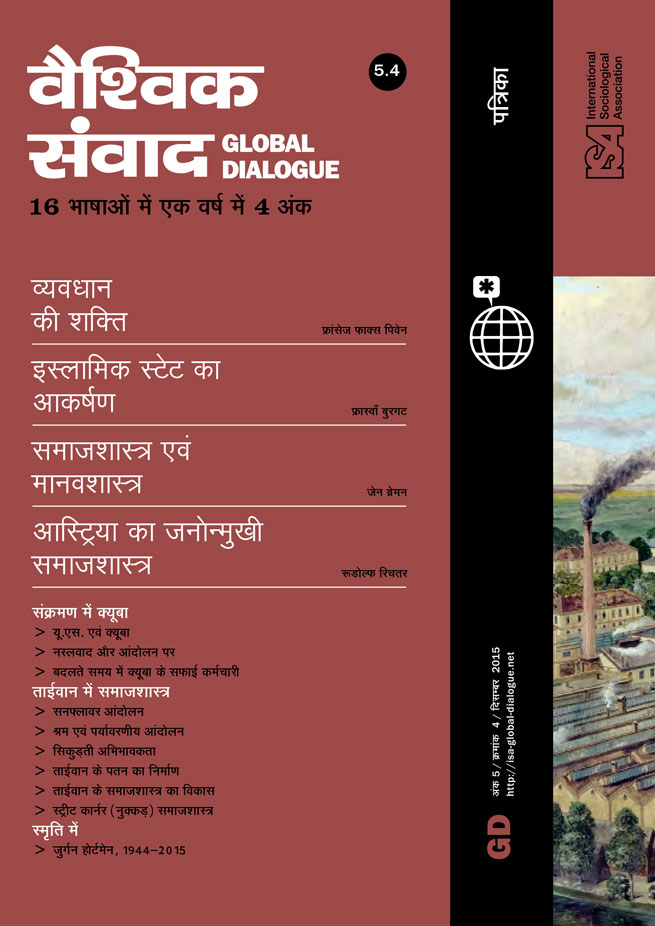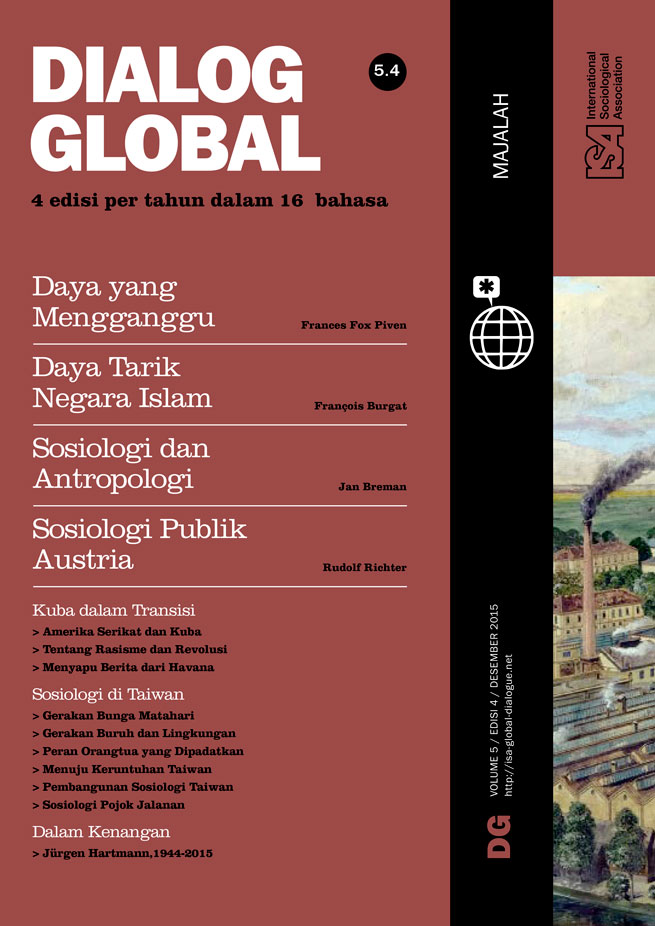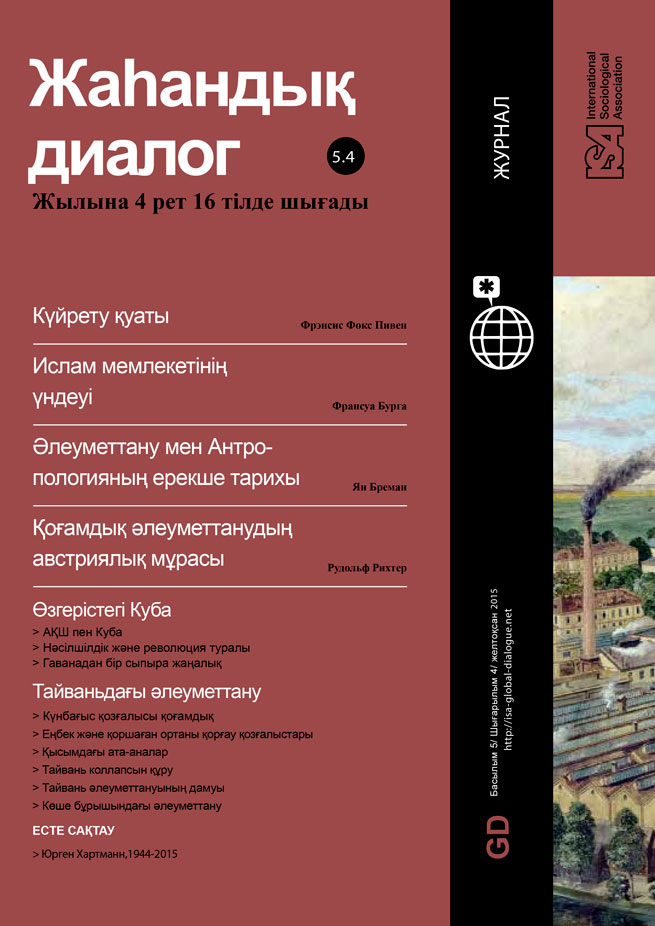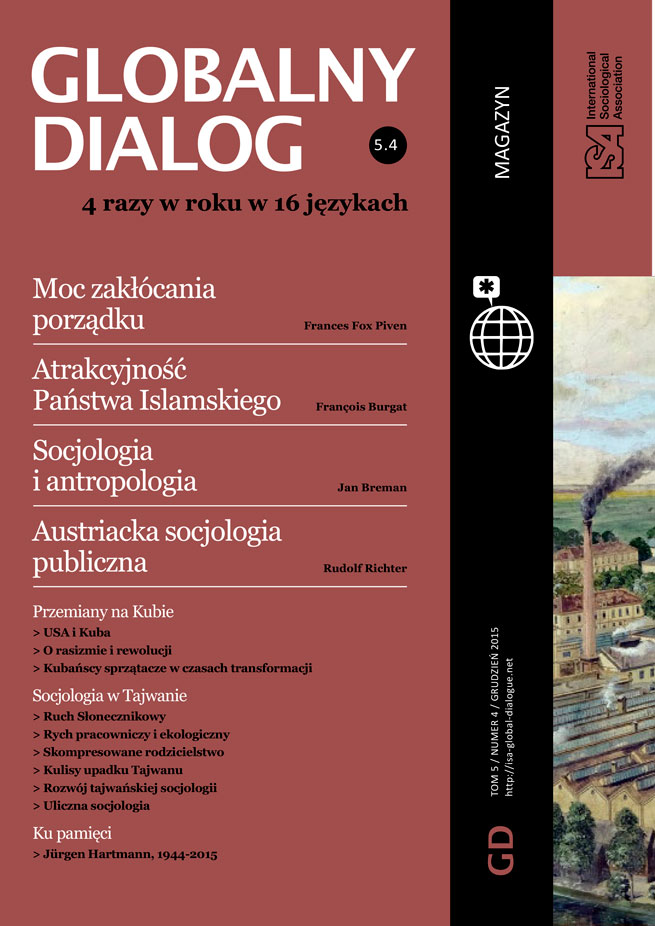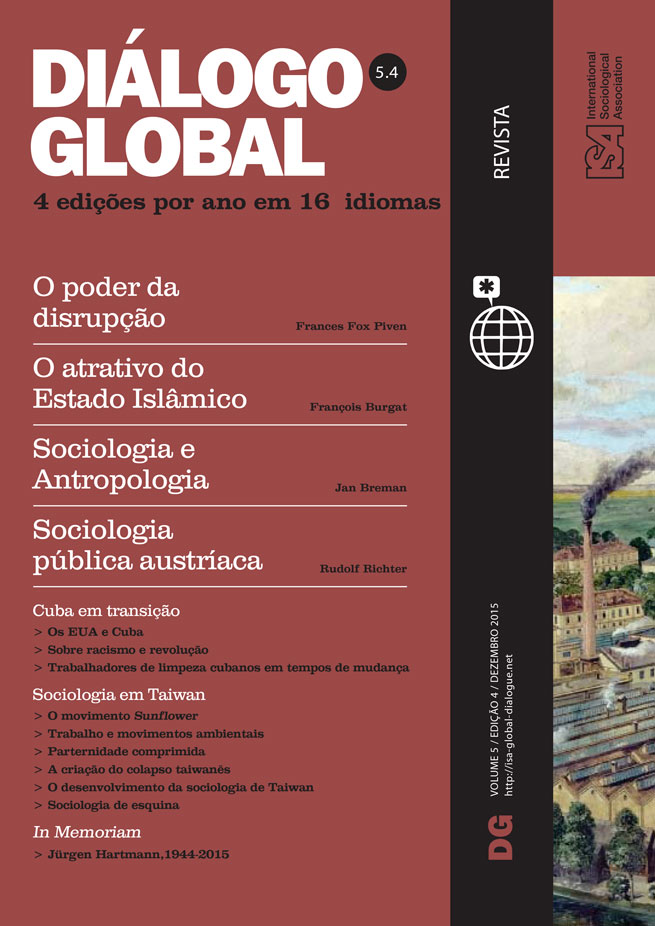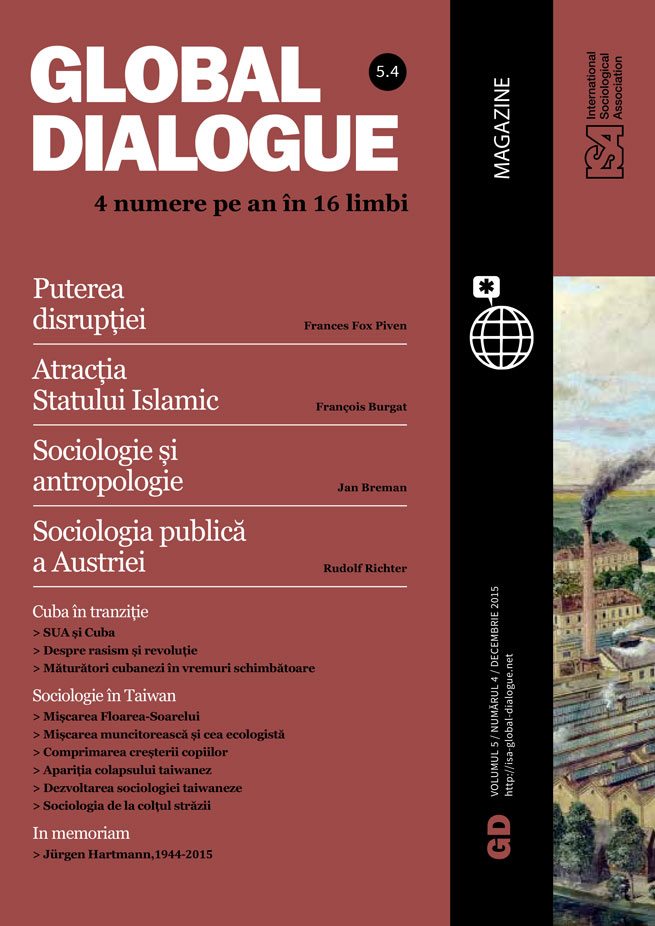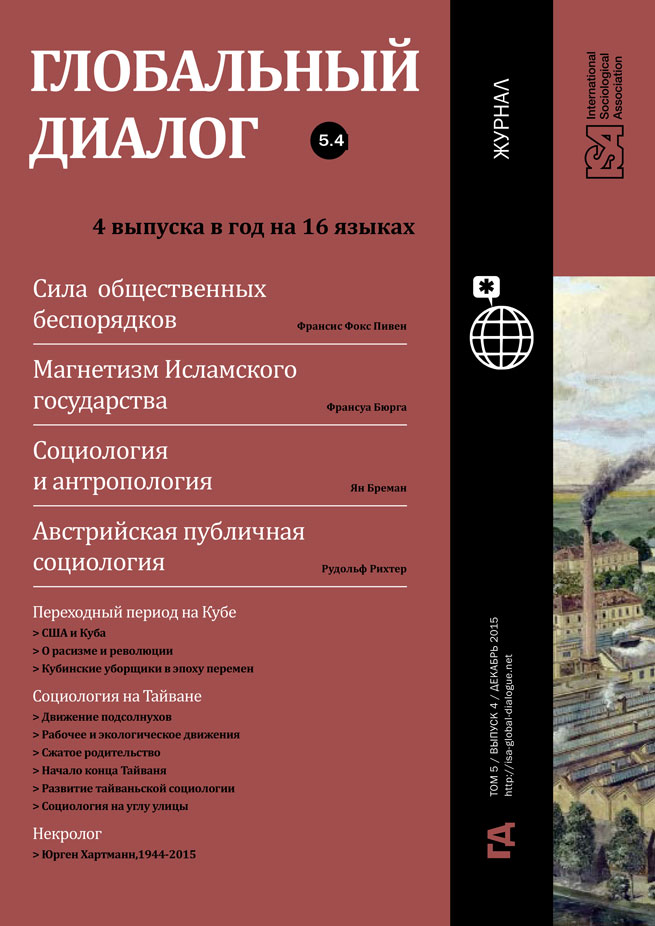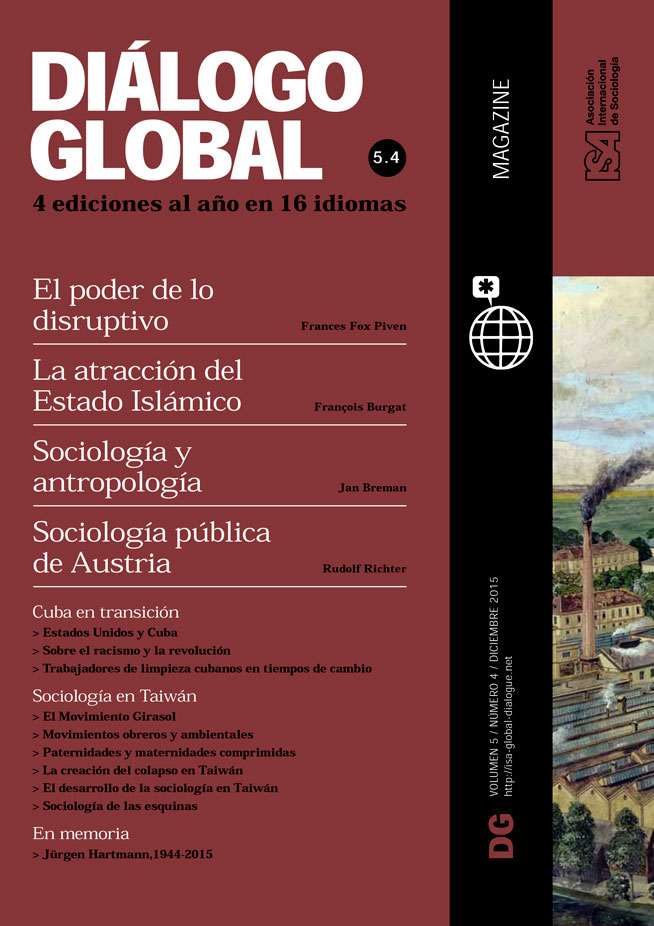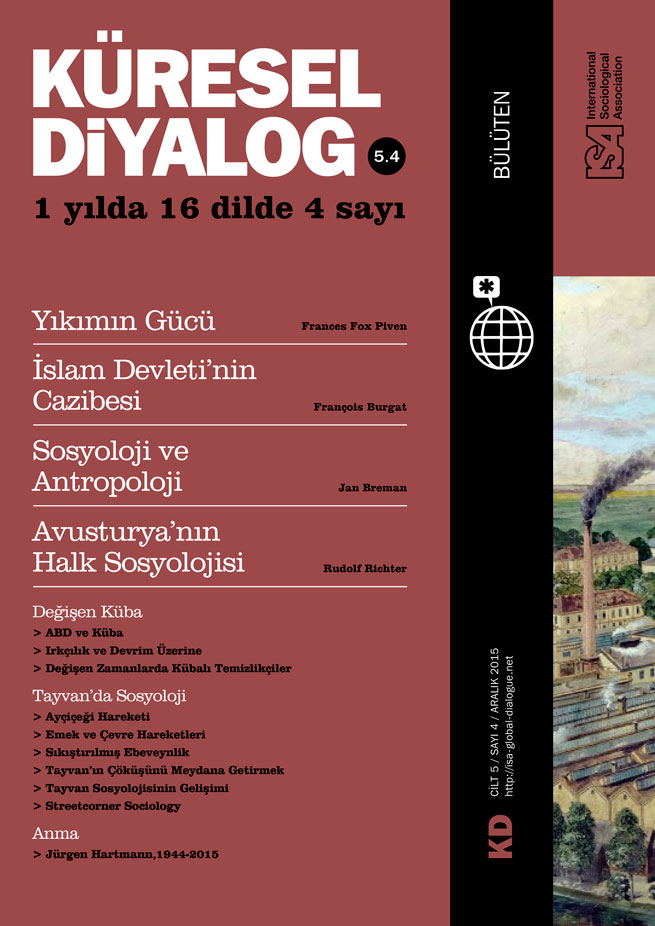A full account of the current status of sociology in Taiwan would be impossible; instead, I offer a few examples illustrating how sociologists “do sociology” in Taiwan. I begin with the most recent annual meeting of the Taiwan Sociological Association (TSA) in November, 2014. For the past twenty years, the association’s annual meeting has been an important community event for its members, now reaching 500. This year, the meeting, held at the National Tsing-hua University, included 64 sessions with 180 papers on topics ranging from studies of political economy to post-modern subjectivities, as well as forums on the East Asia region and on transformations in China. Special guests representing the Japanese Sociological Association and the Korean Sociological Association, as well as Chinese scholars from universities in Hong Kong, were invited to attend.
One of the most notable events of this year’s program was the opening keynote speech. In a departure from tradition, a young graduate student, Yang Wei, was asked to speak about his activism, and reflect on the campaign that occupied the Parliament building and came to be known as the “Sunflower Movement” (See Ming-sho Ho’s article in this issue). This unconventional speech reflects the general outlook of Taiwanese sociologists, many of whom have challenged traditional paradigms with serious debates about inequality, democracy, justice, and citizenship.
But, as in many places, TSA members hold divergent social and political stances, and differ in their sociological imaginations and practices. In the hallways at the annual meeting, members openly expressed opposing opinions about what appeared to be an official endorsement of the occupation movement. Some members were concerned about the danger of politicizing the association with social activism, worrying that it might drag down the organization’s professional status, and damage TSA’s identity as a scholarly association. Taiwan has had its share of debates of this nature, legacies inherited from our discipline’s early founding.
But the TSA is also important for other activities. For instance, it publishes an eminent peer-reviewed bi-annual journal, the Taiwanese Journal of Sociology, along with three newsletters, and a very popular blog site called “Streetcorner Sociology” (see the article by Hong-zen Wang in this issue), which serves as a quick venue for empirical findings and for debates on current affairs.
TSA’s membership overlaps with those of other scholarly associations, including the Taiwanese Feminist Scholars’ Association, the Cultural Studies Association, the Social Welfare Association of Taiwan, Taiwan’s STS (Science, Technology and Society) Association and so on. These “spinning” and “creolizing” relations with adjacent fields and related subject matters give intellectual energy to both sociology and the larger community of social sciences.
In the following, I describe three edited volumes published in the past ten years, to illustrate the substantive interests of Taiwanese sociologists. Each of the volumes represents a particular style: (1) the conventional or “mainstream”, (2) the “transnational” or global, and (3) the “public” type. The selection is very limited but all have been well received and can be taken to be representative of such publications.
Social Change in Taiwan, 1985~2005: Mass Communications and Political Behavior (edited by M. Chang, V. Lo and H. Shyu, 2013) represents what we might term the mainstream of Taiwanese sociology, with articles examining changing political participation and mass communications in Taiwan during the democratization period. These studies are based on national sample data collected since 1989 by the Taiwan Social Change Survey (TSCS) project. These surveys offer “snap shots” which can be used to construct over time trends in citizenship, national identity, religion, gender, family, employment, globalization and other key concepts of mainstream sociology. Since 2002 the project has also included modules from the International Social Survey Program (ISSP) and from the East Asian Social Survey (EASS). The data set is open to scholars worldwide, and useful in comparative studies.
To Cross or Not to Cross: Transnational Taiwan, Taiwan’s Transnationality (edited by H. Wang and P. Guo, 2009) exemplifies the “transnational” character of Taiwanese sociology. In it sociologists, anthropologists and historians suggest that the contemporary context of high mobility and rapid globalization requires us to look beyond the “nation-state.” This volume represents emergent scholarship on the flows of people, culture and capital, crossing social and geographical boundaries from the perspective of Taiwan. Together, the volume’s articles challenge existing territorial assumptions about society. The themes contained in the volume include studies of female domestic workers from Southeast Asia, the global expansion of Taiwan’s Buddhist associations, identity and gender issues in immigrant marriages, and Taiwanese businessmen and women caught between China and Taiwan.
The public strand of Taiwanese sociology is represented by the most recent publication, Streetcorner Sociology (edited by H. Wang, 2015). The book contains 34 articles by 37 contributors, who were asked to write short essays or comments in plain language, explaining sociological findings and reasoning for general readers. The essays are organized into five themes: Political Life, Difficult and Hard Lives, Gender Issues, Lives at the Margins, and the Alternative Way. All articles appeared first as posts on the blog site Streetcorner Sociology (see article by Hong-zen Wang in this issue). The Facebook site was created in February, 2014, and within a month, it attracted more than 3,000 visitors per day. In 2014, every article received 6,700 hits on average, far surpassing other forums in the same period. Despite the fact that all its posts are in the public domain, the sales of the printed volume have broken all records for social science publications in Taiwan.
In the past, critics have suggested that Taiwan’s sociology lacks a character of its own, and have accused it of being too dependent on Western sociology. Thinking back twenty years ago, I have to agree. However, successive generations of sociologists have had to meet many challenges, including pressures for cooptation from an authoritarian state, suspicions held by cultural conservatives, debates about the indigenization of social science in the face of Western influence, and paradigm struggles between China-centrism and Taiwan-centrism. Today, sociology has become organically embedded in society. It has embraced the advance of knowledge of and for the public. Some of the big concepts like class, class reproduction, state, domination, power, social movement, gender, civil society, citizenship, and globalization have been incorporated into high school teaching and the language of mass media.
Despite these seeming successes, new challenges are looming large. One challenge is posed by an aging population and a shrinking population of college-eligible students. Another challenge is the sweeping power of market fundamentalism and global competition. Sociologists and sociology institutions are under administrative pressure to standardize research assessment which provides the rationale for withdrawing resources from disciplines in the humanities and social science that are deemed to be of limited utility. Moreover, all these challenges are occurring at a time of deepening inequalities. But these challenges do not mark Taiwanese sociology as different from sociology elsewhere. So sociologists of the world march into the future side by side.
Mau-kuei Chang, Academia Sinica, Taiwan, and member of the ISA Research Committee on Racism, Nationalism, and Ethnic Relations (RC05) <etpower@gmail.com>





